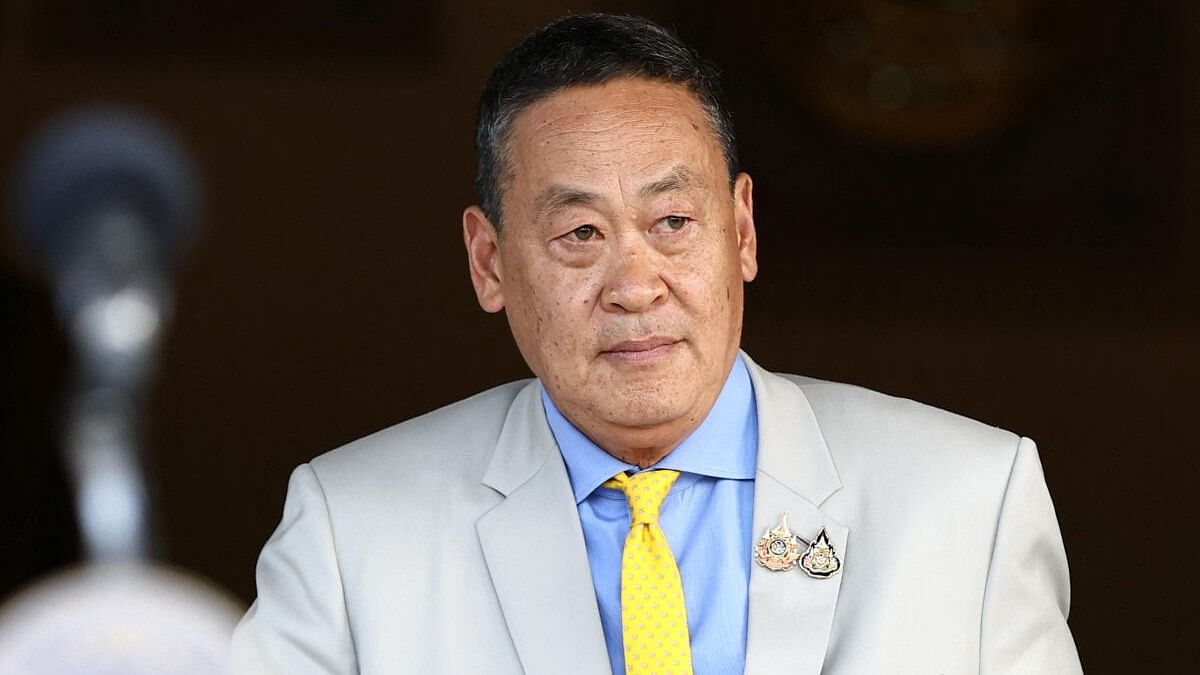
Srettha Thavisin addresses media after the court order.
Credit: Reuters
Bangkok: Srettha Thavisin won a parliamentary vote to become Thailand's prime minister last August, after a closely-fought election where his party had finished only second.
Just under a year later, the 62-year-old property tycoon-turned-politician was dismissed from the premiership by a court order on Wednesday, plunging Southeast Asia's second-largest economy into political turmoil.
Srettha's rise to the highest elected position in the country of at least 66 million people was almost as rapid as his exit.
A former chief executive of Sansiri, one of Thailand's largest real estate firms, Srettha entered politics only a few months ahead of last May's election as a prime ministerial candidate for the populist Pheu Thai party.
Pheu Thai finished second in the polls, but election-winning Move Forward party was blocked by military-appointed lawmakers from forming the government, leaving the door open for Srettha to cobble together a ruling coalition.
"It is an honour to be elected prime minister," he told reporters after securing parliamentary backing, "I'll do my best."
Despite his intentions, Srettha's tenure has been marred by setbacks, with polls indicating a majority of Thais have an unflattering view of his leadership.
In a June survey by the National Institute of Development Administration, only 12.85% of respondents supported Srettha's leadership, down from 22.35% in December.
His government's flagship scheme - a 500 billion baht ($14.22 billion) "digital wallet" to give a 10,000 baht handout to 50 million Thais - has been repeatedly delayed, with disbursements now expected to start in the fourth quarter.
STUTTERING ECONOMY
Some experts, including former central bankers, have called the scheme fiscally irresponsible, and the scale of the handouts has drawn fire from the Bank of Thailand, which has also bickered with the government over key interest rates.
At the same time, the economy, battered by the pandemic, is still struggling to pick up pace. In 2024, it is expected to expand by only 2.7%, according to Finance Ministry projections, on the back on recovering tourist arrivals and exports.
Hit by weak demand and bad debt problems, the Thai industrial sentiment index fell to its lowest in two years in June, with the key auto sector also spluttering and production falling.
Srettha himself faced criticism for frequent globe-trotting during his first 10 months in office, having made 15 international trips in an attempt to drum up foreign investment, before vowing to remain in Thailand for two months.
"Once a prime destination for foreign capital, Thailand now faces increasing regional competition," BMI said in a research note last month. "Economies like India and Vietnam have become major beneficiaries of shifting investment trends."
In late April, Sretta oversaw a cabinet shuffle, which led to his foreign minister resigning in the midst of fighting along the Thai-Myanmar border, setting the stage for the court case that eventually brought him down.
His appointment of Pichit Chuenban, a former lawyer for the politically powerful Shinawatra family, drew complaints from some lawmakers who were then members of a military-appointed Senate, the same body that helped Srettha take office.
The group of 40 conservative senators argued that the appointment did not meet ethnical standards - a charge that the constitutional court has upheld, effectively ending Srettha's term.
Ahead of Wednesday's decision, Srettha's chief of staff, Prommin Lertsuridej, told Reuters that the result of a series of measures implemented by the government to support the economy would soon become clear. "It takes some time," he said.
The premier, however, has none left.